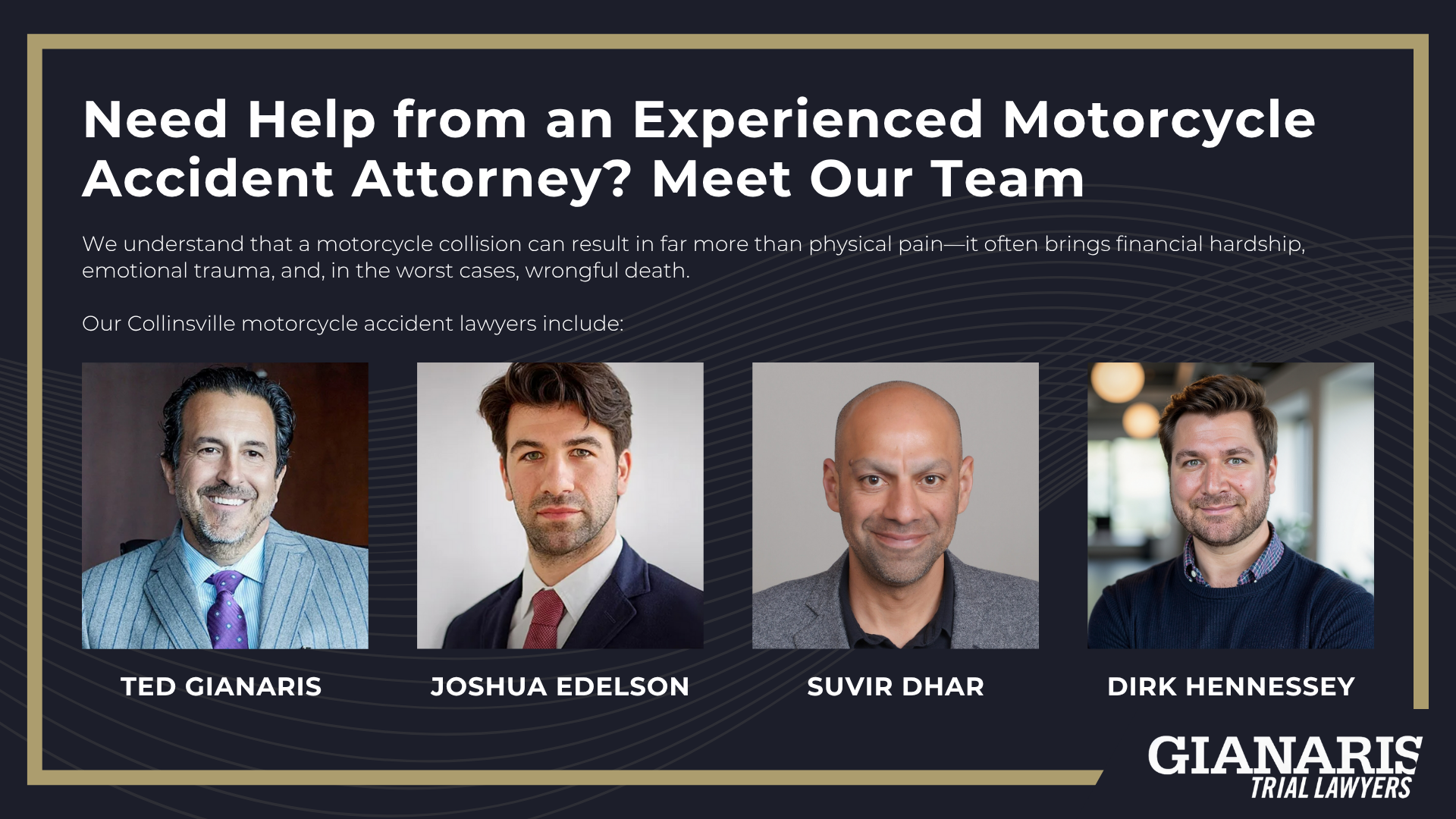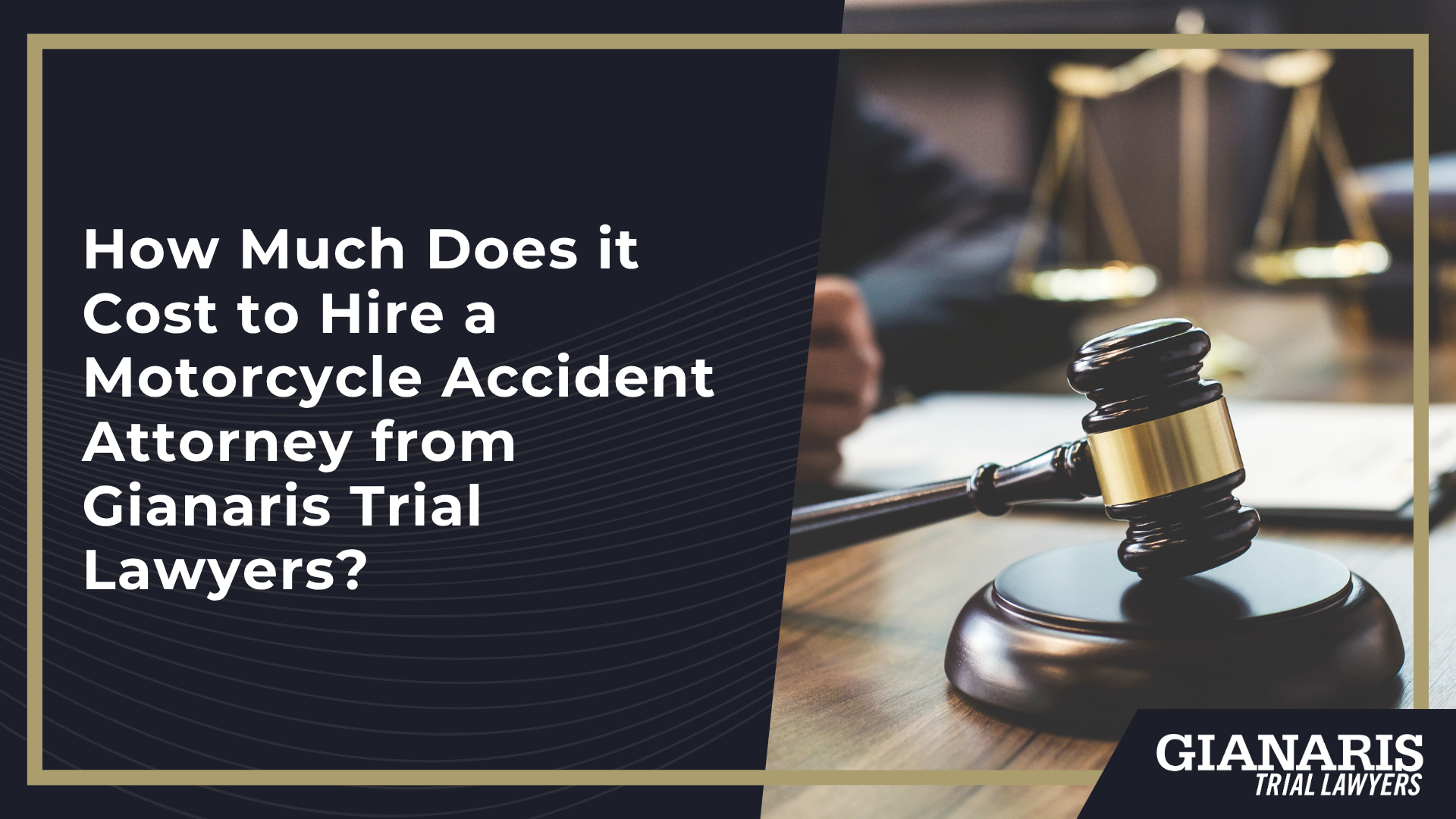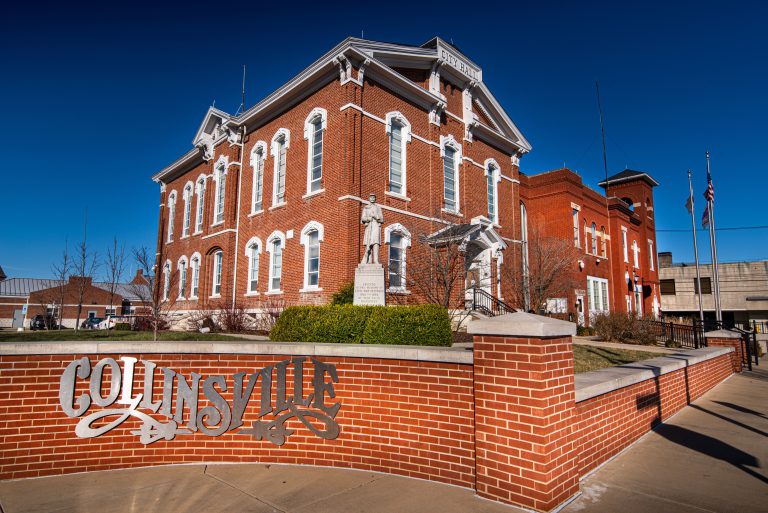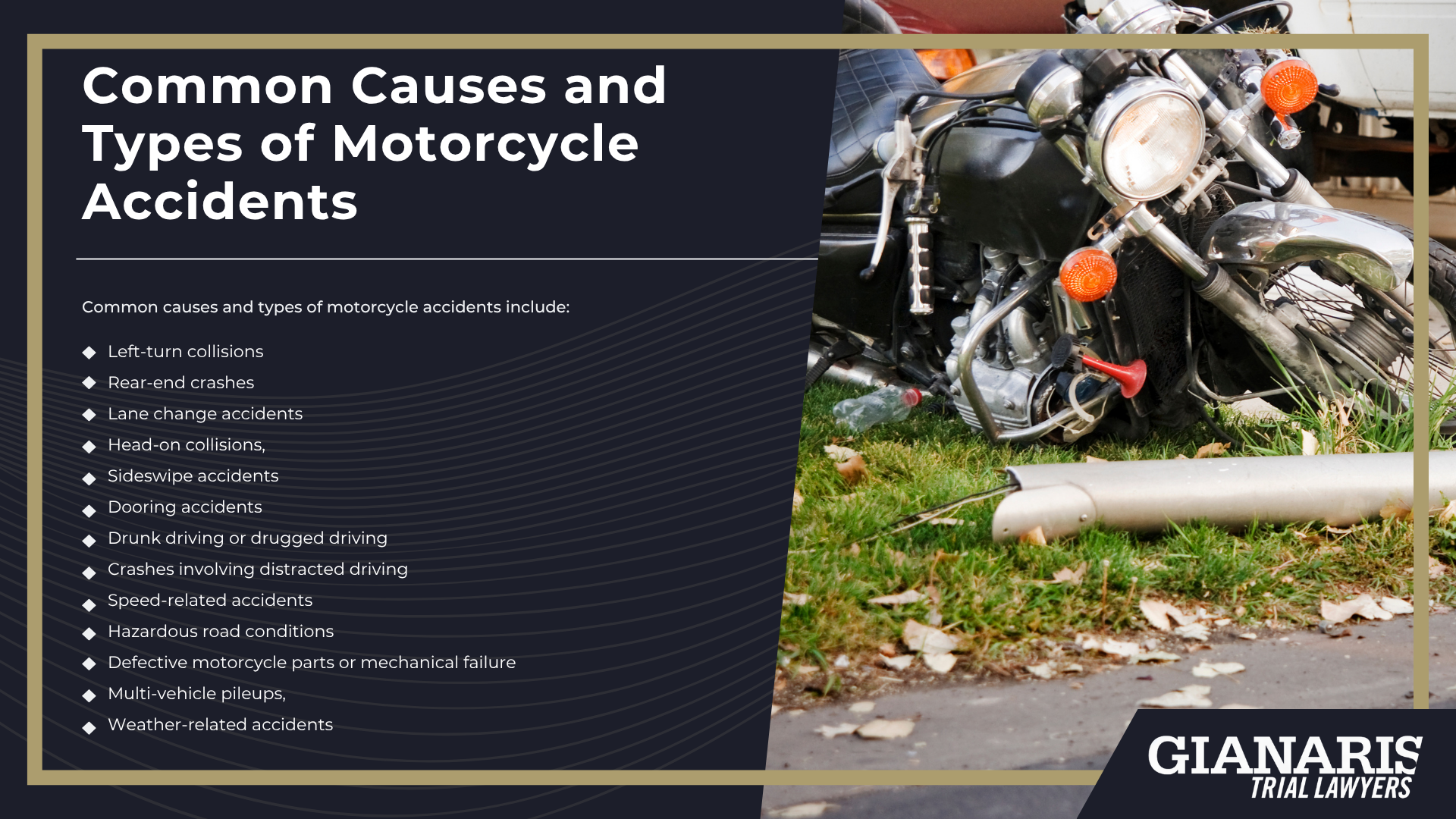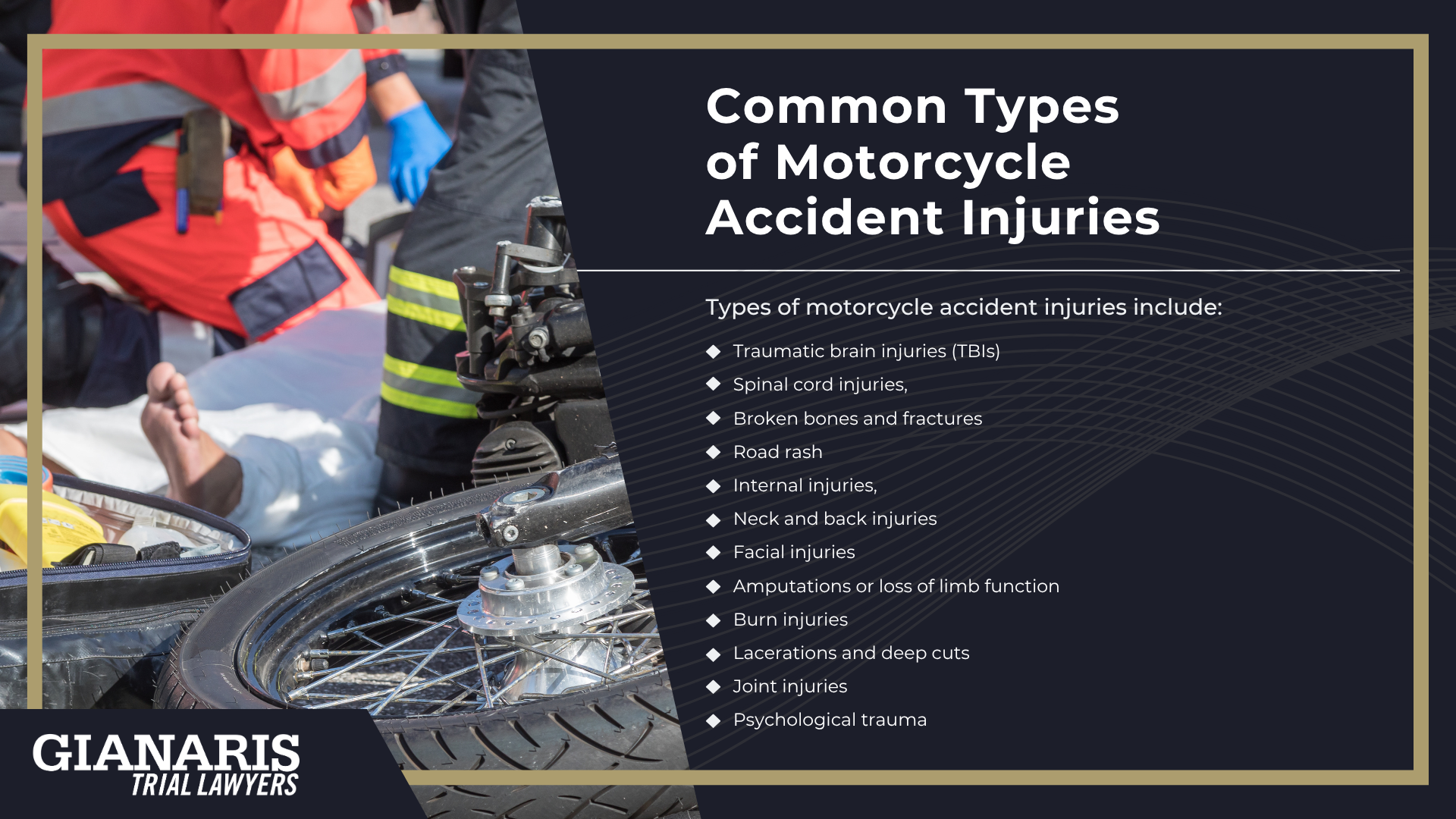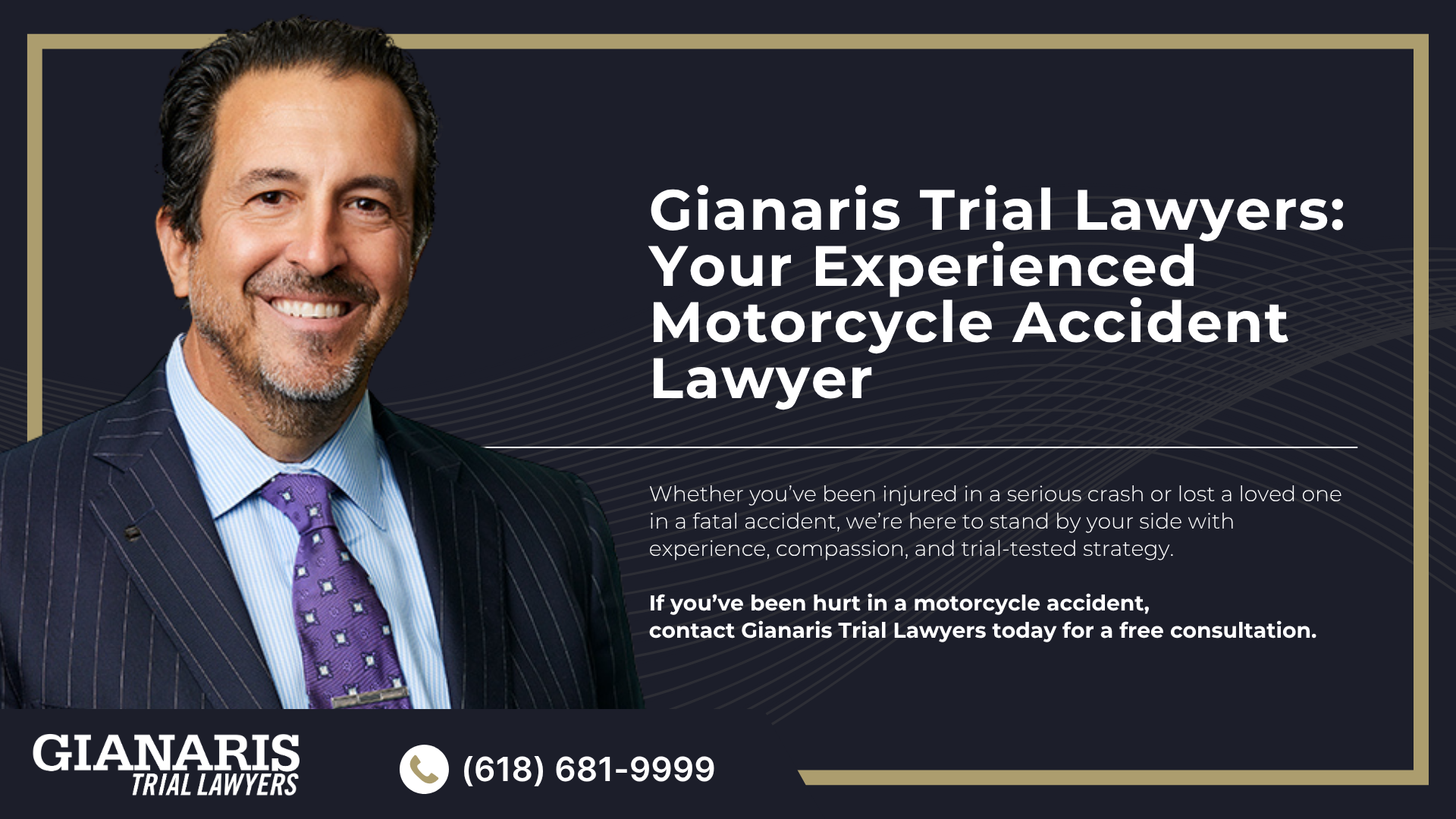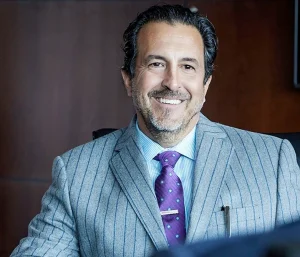Unlike a typical automobile accident, motorcycle crashes often lead to more severe injuries and more challenging legal battles.
Most motorcycle accidents are caused by a careless driver who fails to yield, misjudges speed or distance, or simply doesn’t see the rider.
Because motorcycles offer less protection than cars, when a victim suffers serious injuries or permanent impairment, the stakes in these cases are extremely high.
An insurance claim may not be enough to cover the full extent of medical costs, lost wages, and long-term impact.
Insurance companies often try to shift blame onto the motorcyclist or downplay the seriousness of their injuries.
That’s why it’s essential to work with a personal injury lawyer who has experience handling motorcycle cases and pushing back against unfair tactics.
At Gianaris Trial Lawyers, we build every case for trial, not settlement—so our clients are in the strongest possible position from the beginning.
Whether you’re dealing with serious injuries or a wrongful death claim, we help you pursue full compensation while you focus on recovery.
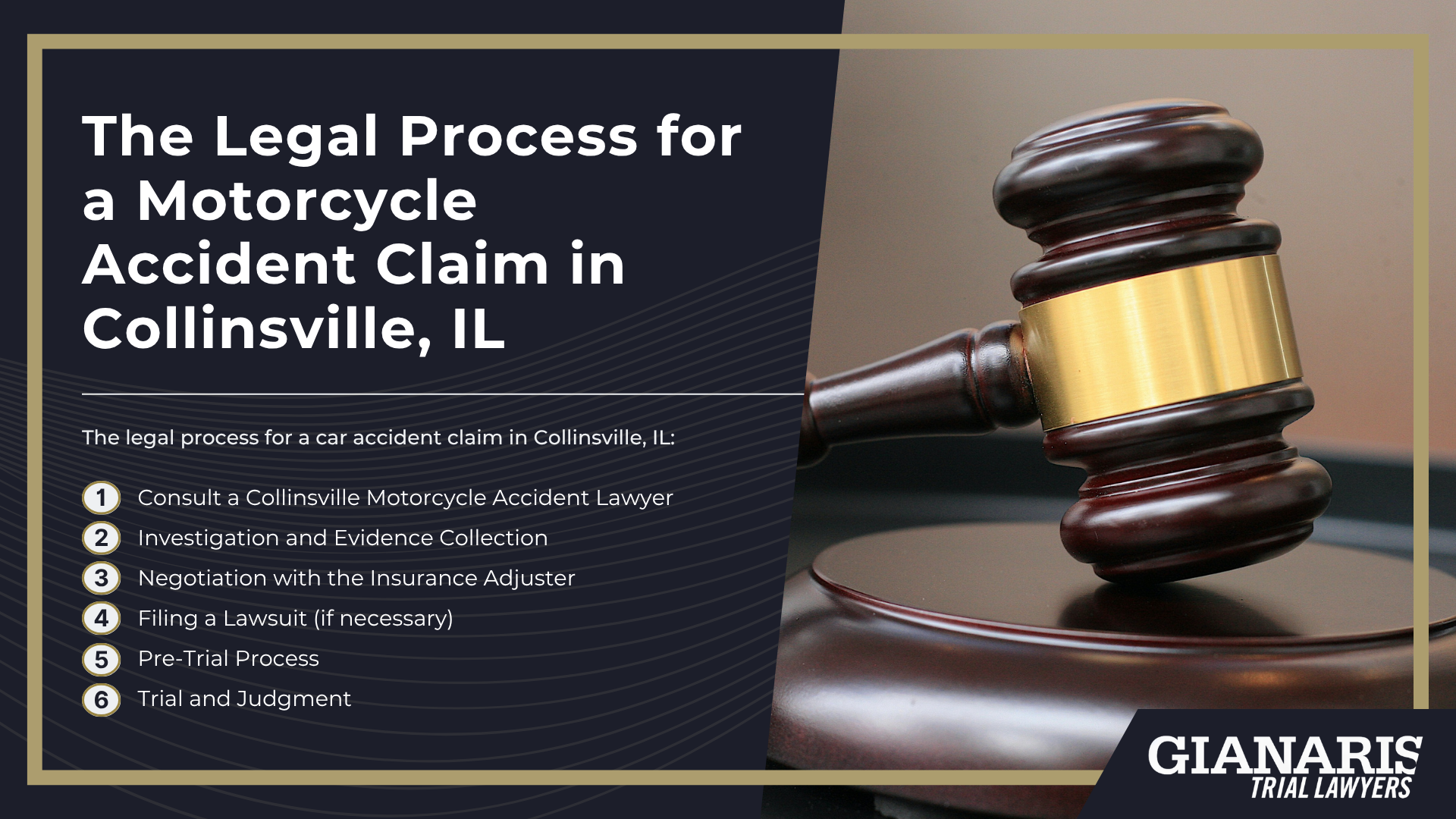
The legal process for a motorcycle accident case in Illinois typically includes:
- Consult a Collinsville Motorcycle Accident Lawyer: Your attorney will review the facts of your case, determine who is at fault, and evaluate the full scope of damages you’ve suffered.
- Investigation and Evidence Collection: Your legal team will gather police reports, medical records, crash scene photos, helmet and gear damage, and witness statements to build your case.
- Negotiation with the Insurance Adjuster: Your lawyer will handle all communication with the insurance company representing the careless driver, and negotiate for fair compensation.
- Filing a Lawsuit (if necessary): If a settlement isn’t reached, your attorney will file a formal lawsuit to pursue damages in court.
- Pre-Trial Process: This includes depositions, expert evaluations, legal motions, and possibly mediation before the case reaches trial.
- Trial and Judgment: If your case proceeds to trial, a judge or jury will review the evidence and determine liability, awarding damages based on the victim’s suffering, financial loss, and impact of the accident.
Gathering Evidence for a Motorcycle Accident Personal Injury Case
Motorcycle accident victims often suffer serious or life-threatening injuries that make it impossible to collect evidence at the scene.
Unlike car drivers, motorcyclists have little physical protection, which increases the likelihood of being transported to the hospital before they can document anything.
Our attorneys step in quickly to investigate the crash, secure critical evidence, and ensure nothing is lost or overlooked.
We work with experts, review official reports, and reconstruct the accident to build the strongest case possible on your behalf.
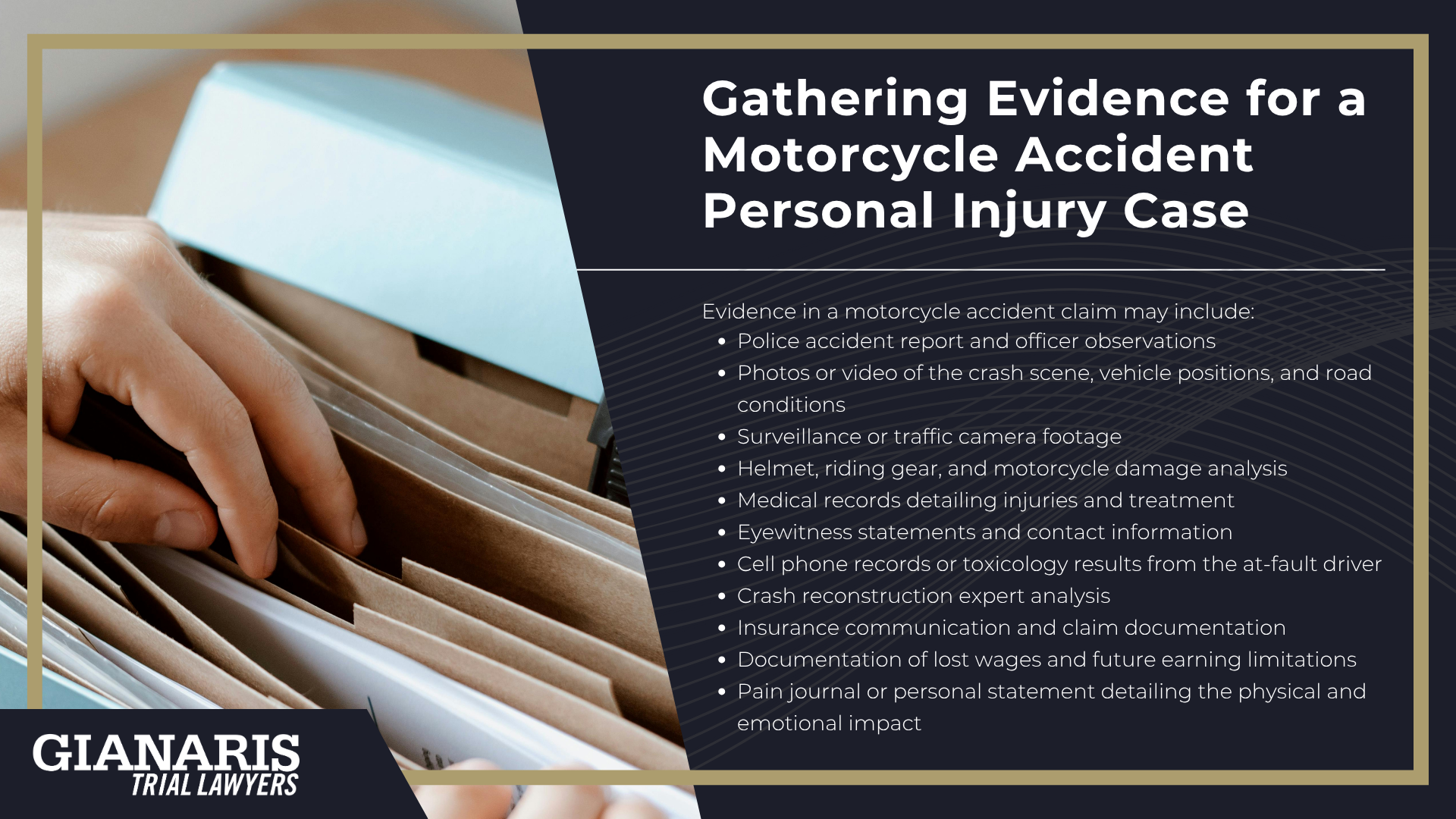
Evidence in a motorcycle accident claim may include:
- Police accident report and officer observations
- Photos or video of the crash scene, vehicle positions, and road conditions
- Surveillance or traffic camera footage
- Helmet, riding gear, and motorcycle damage analysis
- Medical records detailing injuries and treatment
- Eyewitness statements and contact information
- Cell phone records or toxicology results from the at-fault driver
- Crash reconstruction expert analysis
- Insurance communication and claim documentation
- Documentation of lost wages and future earning limitations
- Pain journal or personal statement detailing the physical and emotional impact
Types of Damages in Motorcycle Accident Cases
Our motorcycle accident lawyers work closely with every client to assess the full extent of harm caused by the crash—both physically and financially.
We evaluate immediate and long-term needs, including medical treatment, lost income, and the personal toll the injuries have taken.
Most motorcycle accident victims face lasting consequences, from chronic pain to permanent disability, and their compensation should reflect that reality.
By calculating both economic and non-economic damages, we fight to secure the maximum compensation an injured motorcyclist deserves.
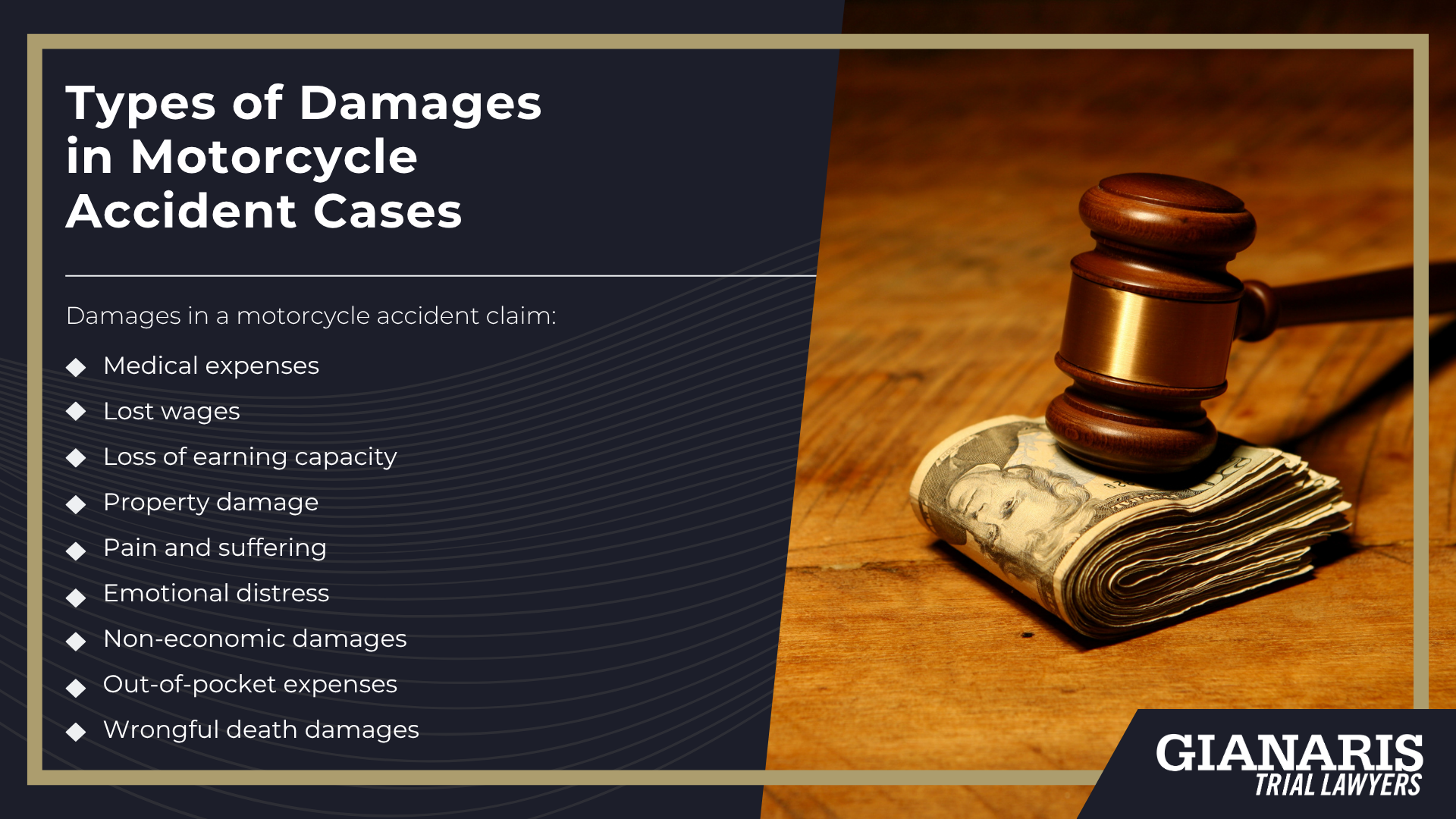
Damages in a motorcycle accident claim:
- Medical expenses for emergency care, surgery, rehabilitation, and future treatment needs
- Lost wages from missed work during recovery
- Loss of earning capacity if the injuries affect future employment
- Property damage for the repair or replacement of the damaged motorcycle and gear
- Pain and suffering from physical injuries and prolonged recovery
- Emotional distress, including anxiety, depression, and trauma
- Non-economic damages such as loss of enjoyment of life or permanent disfigurement
- Out-of-pocket expenses for medications, assistive devices, or transportation
- Wrongful death damages for surviving family members in fatal motorcycle crash cases
Illinois Motorcycle Laws
Illinois has clear regulations in place for motorcycle riders to promote safety and legal compliance on the road.
All motorcycle operators must have a valid Class M endorsement on their license, which can be earned by passing written and skills tests or completing an approved training course.
While helmets are not required by law, riders must wear protective eye gear unless their motorcycle has a full windscreen.
The state also prohibits lane splitting, and violating this rule may lead to misdemeanor or even felony charges if an injury occurs.
Motorcycles must be equipped with specific safety features, and riders are required to carry minimum liability insurance.
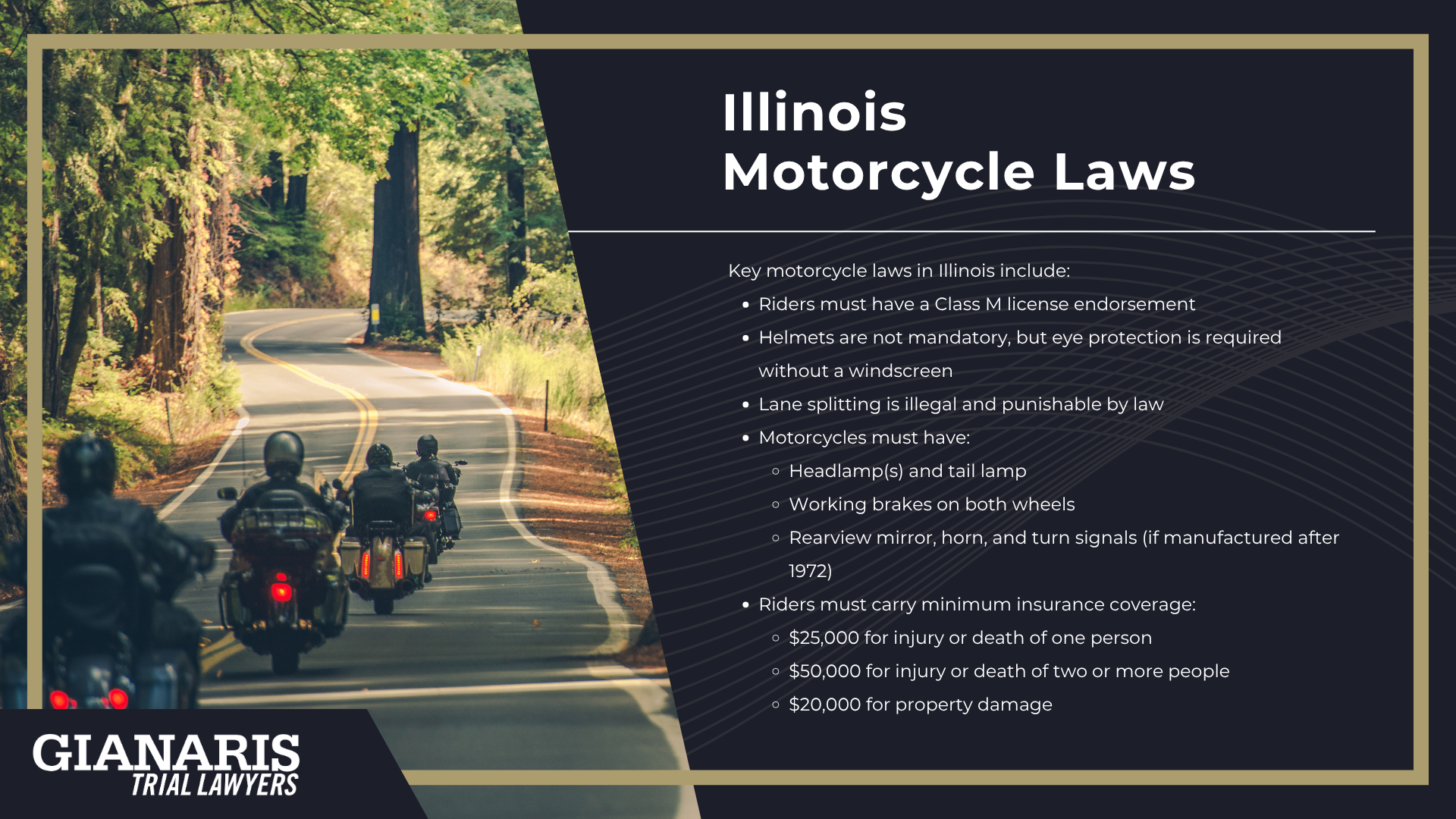
Key motorcycle laws in Illinois include:
- Riders must have a Class M license endorsement
- Helmets are not mandatory, but eye protection is required without a windscreen
- Lane splitting is illegal and punishable by law
- Motorcycles must have:
- Headlamp(s) and tail lamp
- Working brakes on both wheels
- Rearview mirror, horn, and turn signals (if manufactured after 1972)
- Riders must carry minimum insurance coverage:
- $25,000 for injury or death of one person
- $50,000 for injury or death of two or more people
- $20,000 for property damage
